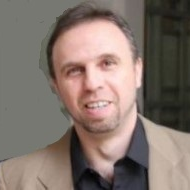Latin American Theology of Liberation in the 21st Century
A special issue of Religions (ISSN 2077-1444). This special issue belongs to the section "Religions and Health/Psychology/Social Sciences".
Deadline for manuscript submissions: 1 August 2024 | Viewed by 3885
Special Issue Editors
Interests: systematic theology; theology and literature; mysticism; spirituality; spiritual exercises of Saint Ignatius of Loyola; theology of liberation
Interests: systematic theology; theological epistemology; theology and literature; ancient Christian authors and classical studies; complexity; common home issues; public theology; archaeology of theo-logical knowledge
Special Issues, Collections and Topics in MDPI journals
Interests: systematic theology; Christian spirituality; theology and literature; Latin American theology; ecumenism; Trinity
Special Issues, Collections and Topics in MDPI journals
Special Issue Information
Dear Colleagues,
This Special Issue aims to contemplate the emergence, development, consequences, and current tendencies of “Latin American Theology of Liberation in the 21st century”.
In the middle of the 20th century, Christian Churches in Latin America experienced a major shift, giving birth to a new way of practicing theology. It was called Liberation Theology, and used a new method, departing from reality with the poor and oppressed as protagonists. This was how Churches of the South made the “reception” of Vatican II Council, which was the most important religious event of the century. The big question of humanity and creation is and must be the main concern of the Church and of theology. Among those who comprise humanity, the poor and afflicted of all kinds are always there, calling for justice and recognition. Unfortunately, poverty is far from being overcome, and justice is not a fact in today’s world—especially in Latin America. With one-third of the population living below the line of extreme poverty, the options for the poor remain a real priority. Today, Latin American theology shows a new face, in spite of remaining faithful to its roots: not to practice a theology only as an academic pursuit searching for an intellectual product, but to connect faith, religion and justice, either in economic, social or cultural terms. If the first awakening for humankind in modern times was the awakening from dogmatic slumber, with modern philosophers and the masters of suspicion, the second awakening is from the slumber of inhumanity. This is the path that Latin American theology has already followed for 50 years. After 1989, this theology was enriched by including as its hermeneutical mediations not only economy, politics and history, but also anthropology and cultural studies. Other anthropological inequities, such as those found in ecology, gender, race and ethnicity, have continually challenged theological reflection since then. Latin American theology continues to be a contextual theology, and thus continues to pay very close attention to all of these issues. The election of Pope Francis has surely had a strong impact on Latin American theology in the 21st century. The Latin American Pope turned the world’s eyes again to the Church and the theology of his continent. As Vaticanists and commentators have said, thanks to Pope Francis there is something like a resurrection taking place in the Catholic Church in Latin America. This Special Issue intends to collect contributions on these and other issues linked directly or indirectly to the Latin American Theology of Liberation.
We request that, prior to submitting a manuscript, interested authors initially submit a proposed title and an abstract of 400–600 words summarizing their intended contribution. Please send it to the guest editors ([email protected], [email protected], and [email protected]) or to /Religions/ editorial office ([email protected]). Abstracts will be reviewed by the guest editors for the purposes of ensuring proper fit within the scope of the special issue. Full manuscripts will undergo double-blind peer-review.
Prof. Dr. Maria Clara Lucchetti Bingemer
Dr. Alex Villas Boas
Prof. Dr. Peter Casarella
Guest Editors
Manuscript Submission Information
Manuscripts should be submitted online at www.mdpi.com by registering and logging in to this website. Once you are registered, click here to go to the submission form. Manuscripts can be submitted until the deadline. All submissions that pass pre-check are peer-reviewed. Accepted papers will be published continuously in the journal (as soon as accepted) and will be listed together on the special issue website. Research articles, review articles as well as short communications are invited. For planned papers, a title and short abstract (about 100 words) can be sent to the Editorial Office for announcement on this website.
Submitted manuscripts should not have been published previously, nor be under consideration for publication elsewhere (except conference proceedings papers). All manuscripts are thoroughly refereed through a double-blind peer-review process. A guide for authors and other relevant information for submission of manuscripts is available on the Instructions for Authors page. Religions is an international peer-reviewed open access monthly journal published by MDPI.
Please visit the Instructions for Authors page before submitting a manuscript. The Article Processing Charge (APC) for publication in this open access journal is 1800 CHF (Swiss Francs). Submitted papers should be well formatted and use good English. Authors may use MDPI's English editing service prior to publication or during author revisions.
Keywords
- Latin American Theology
- Theology of Liberation
- Theology of the People
- Latin American Church
- Pope Francis and Latin American Theology







